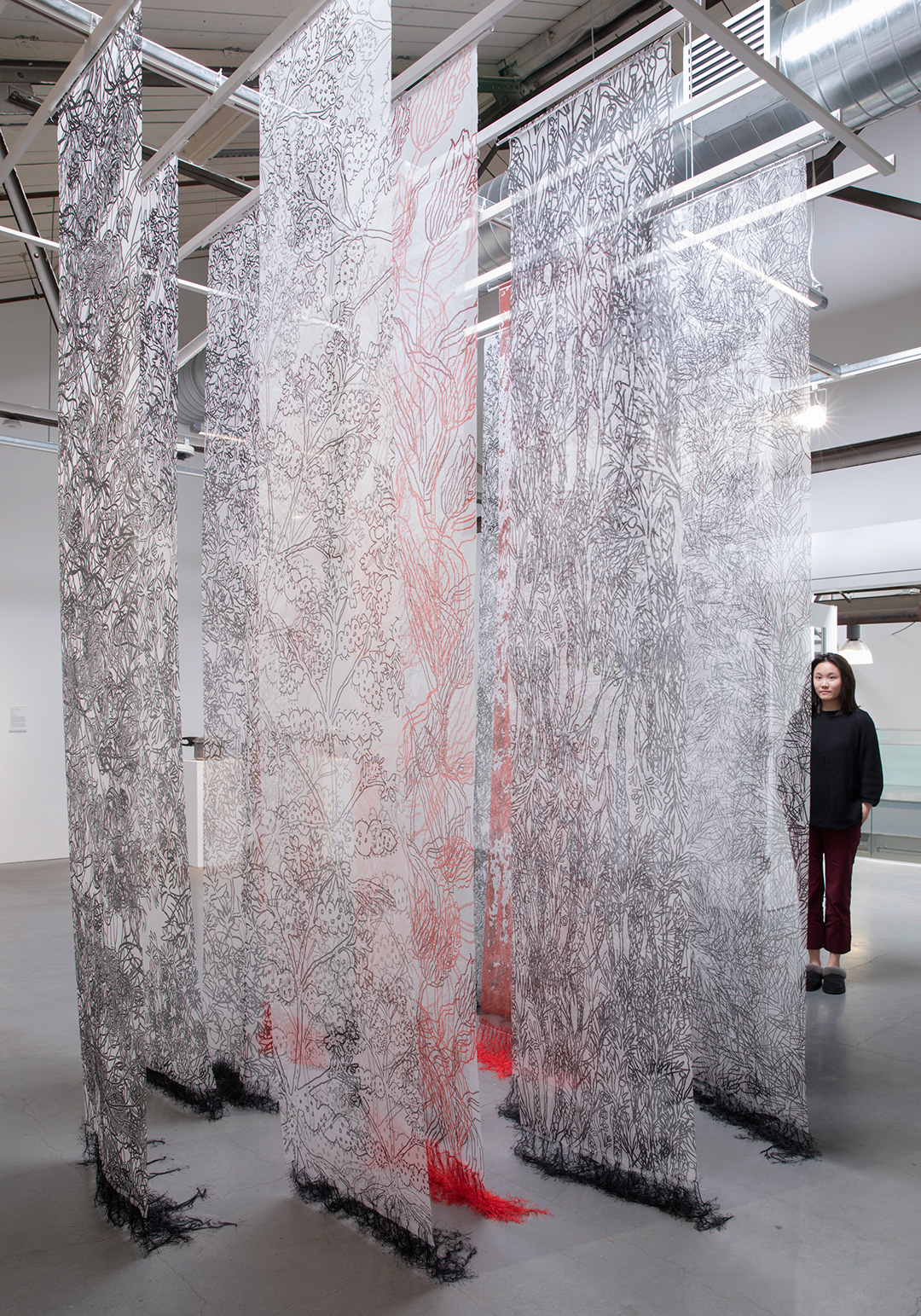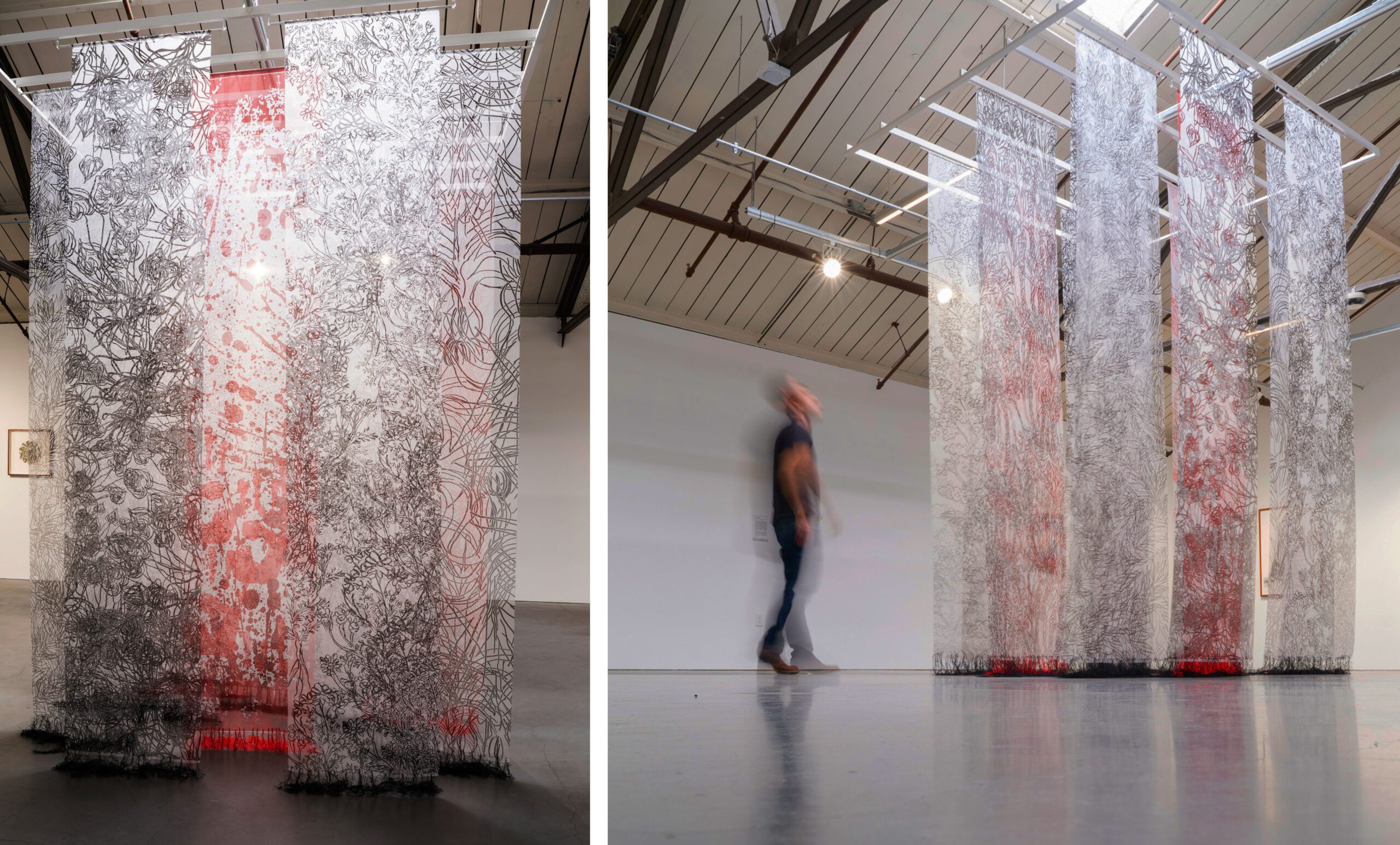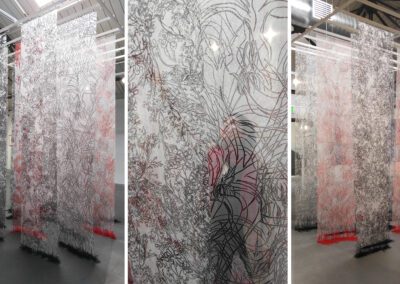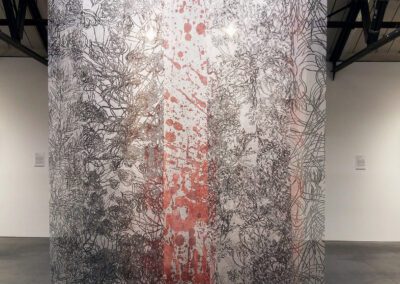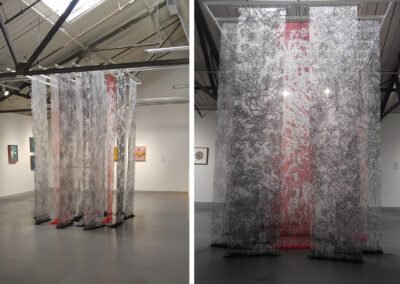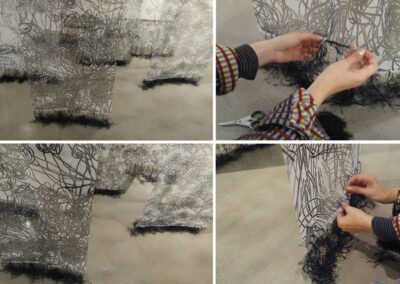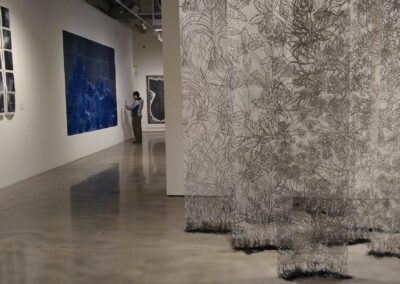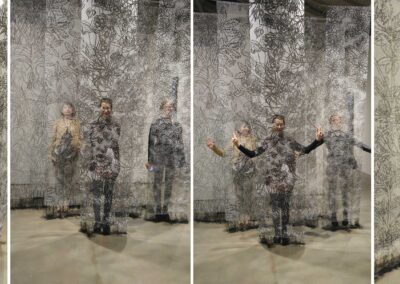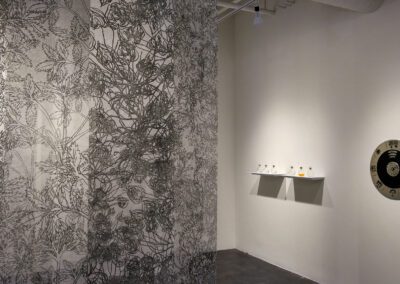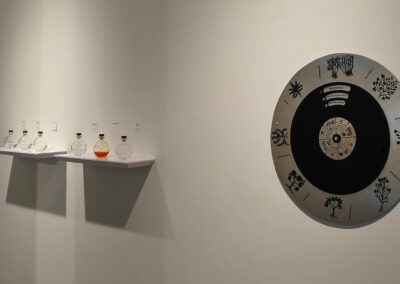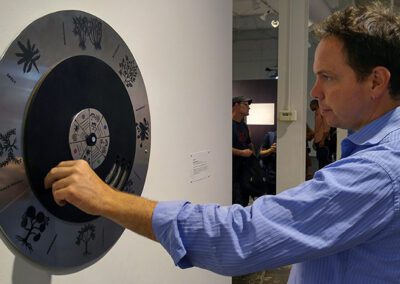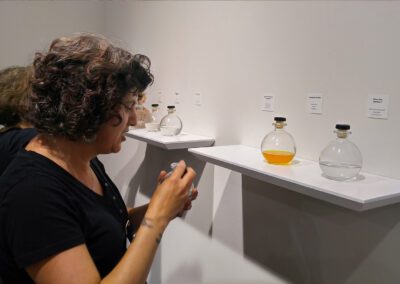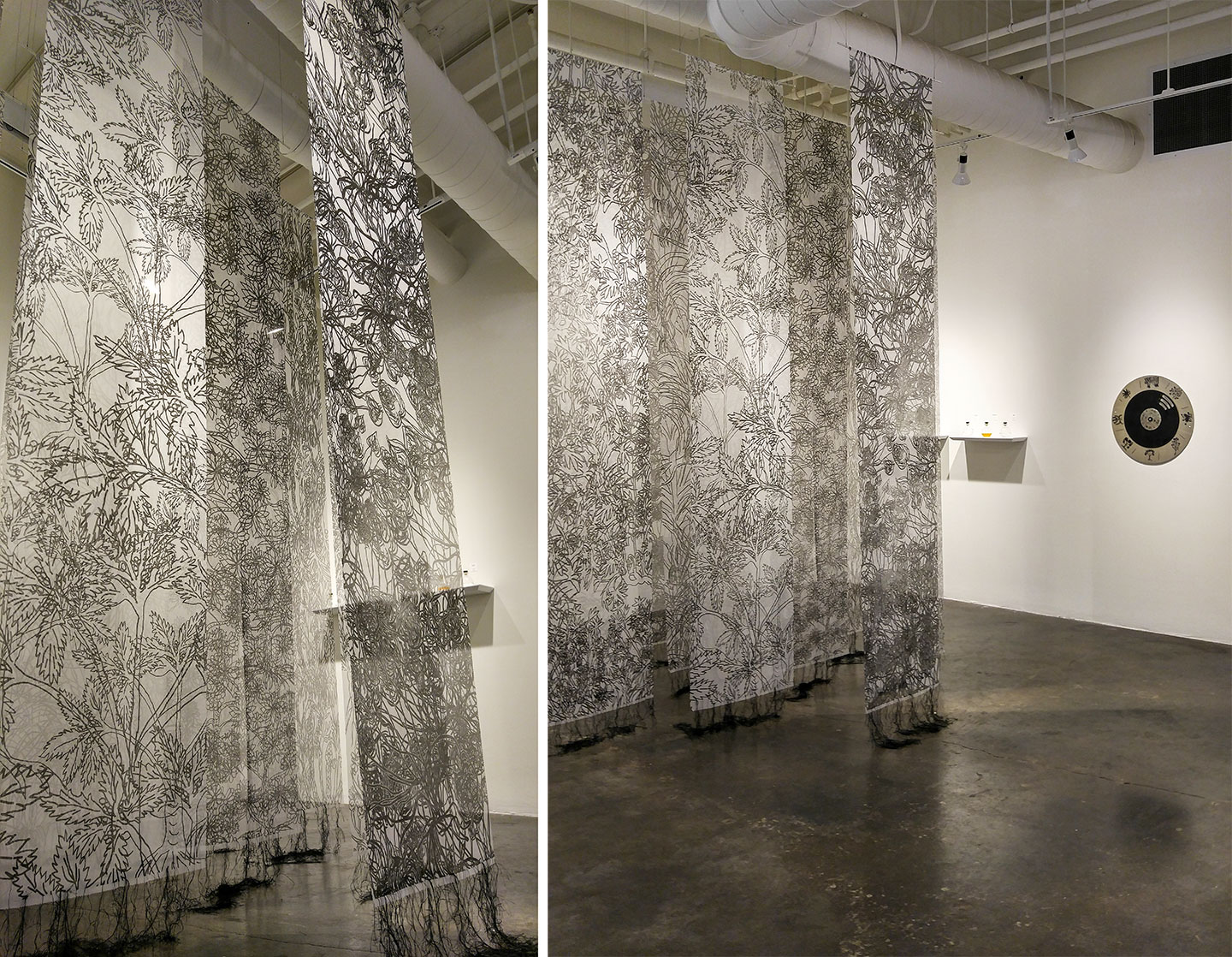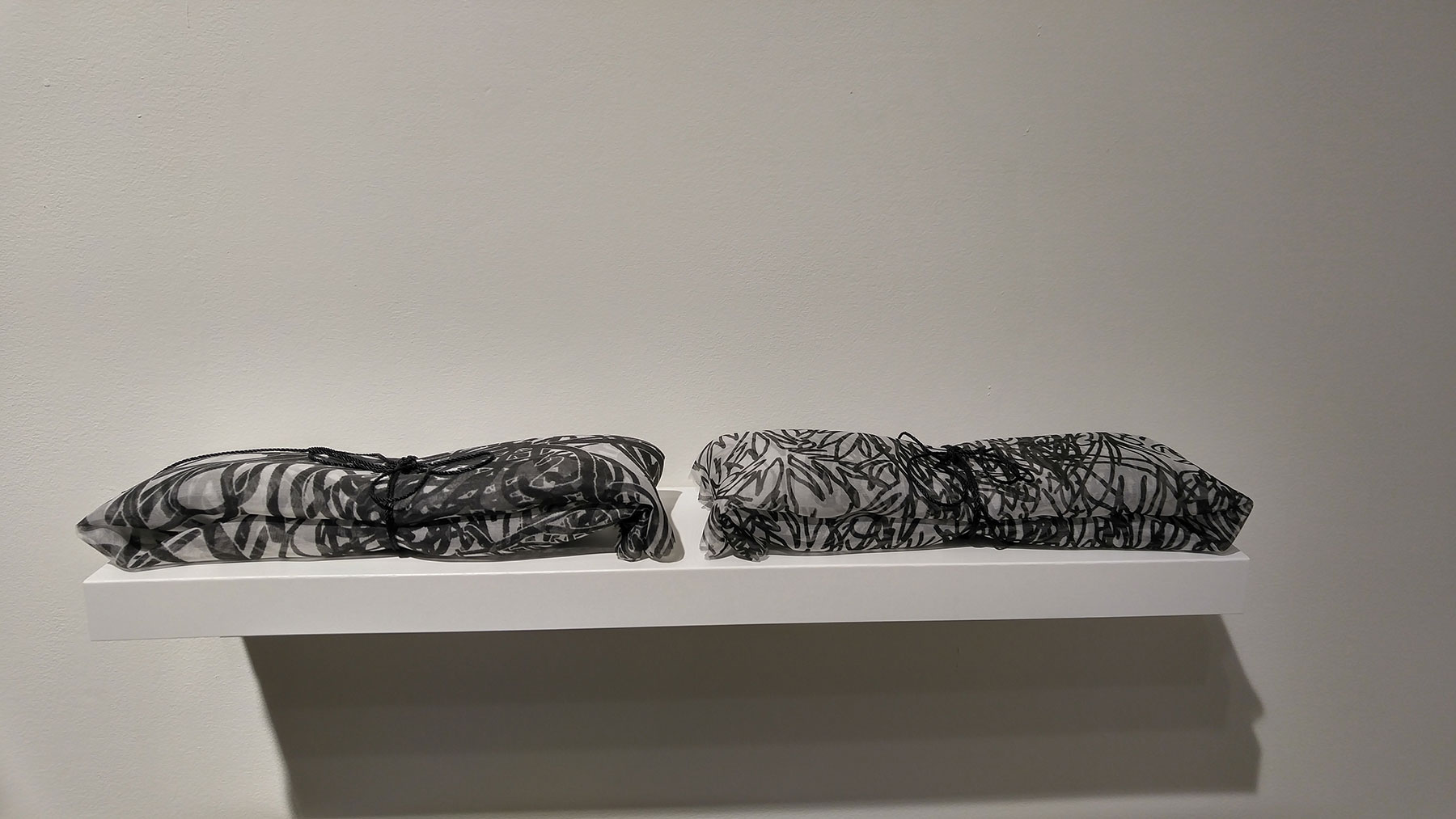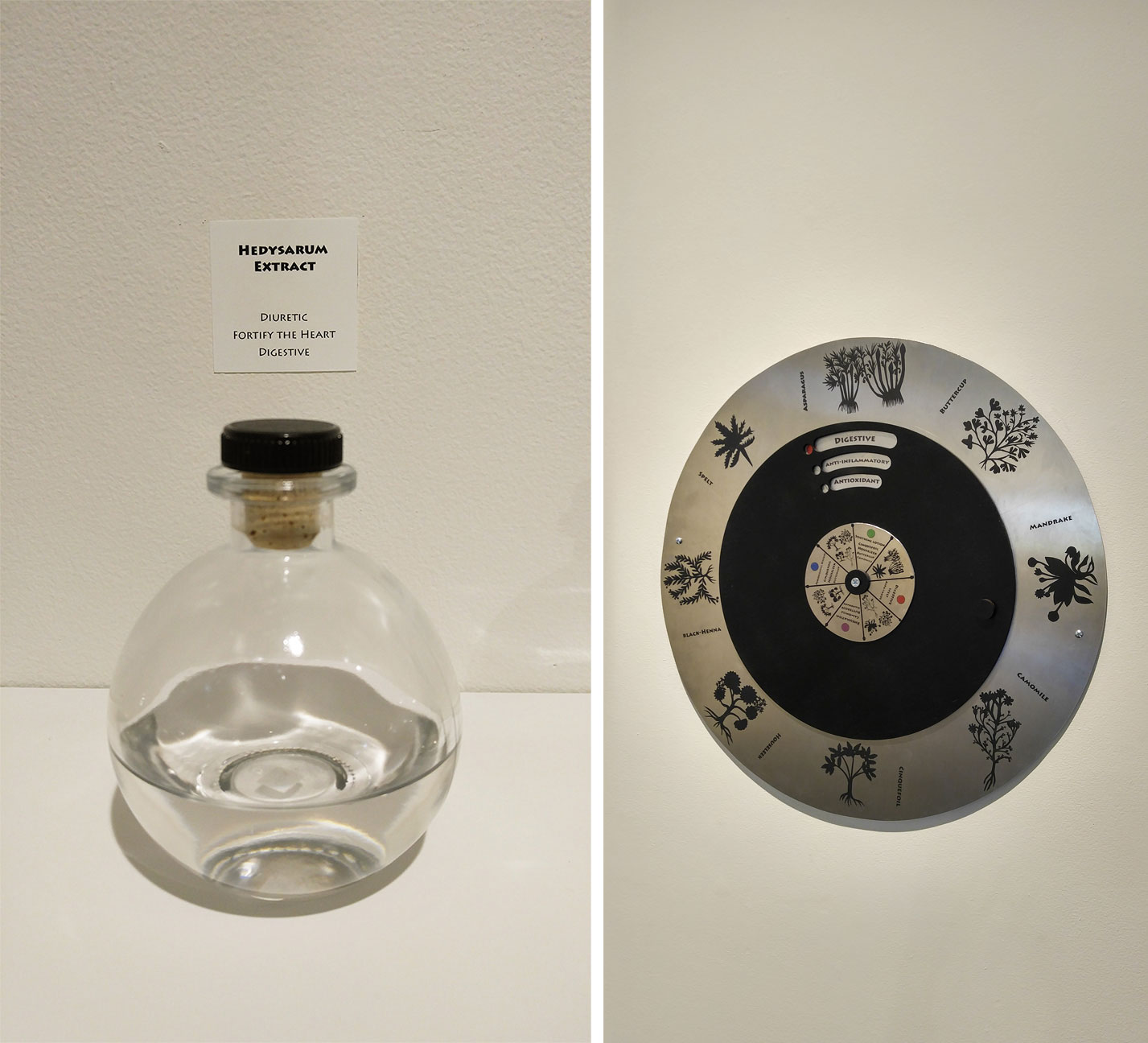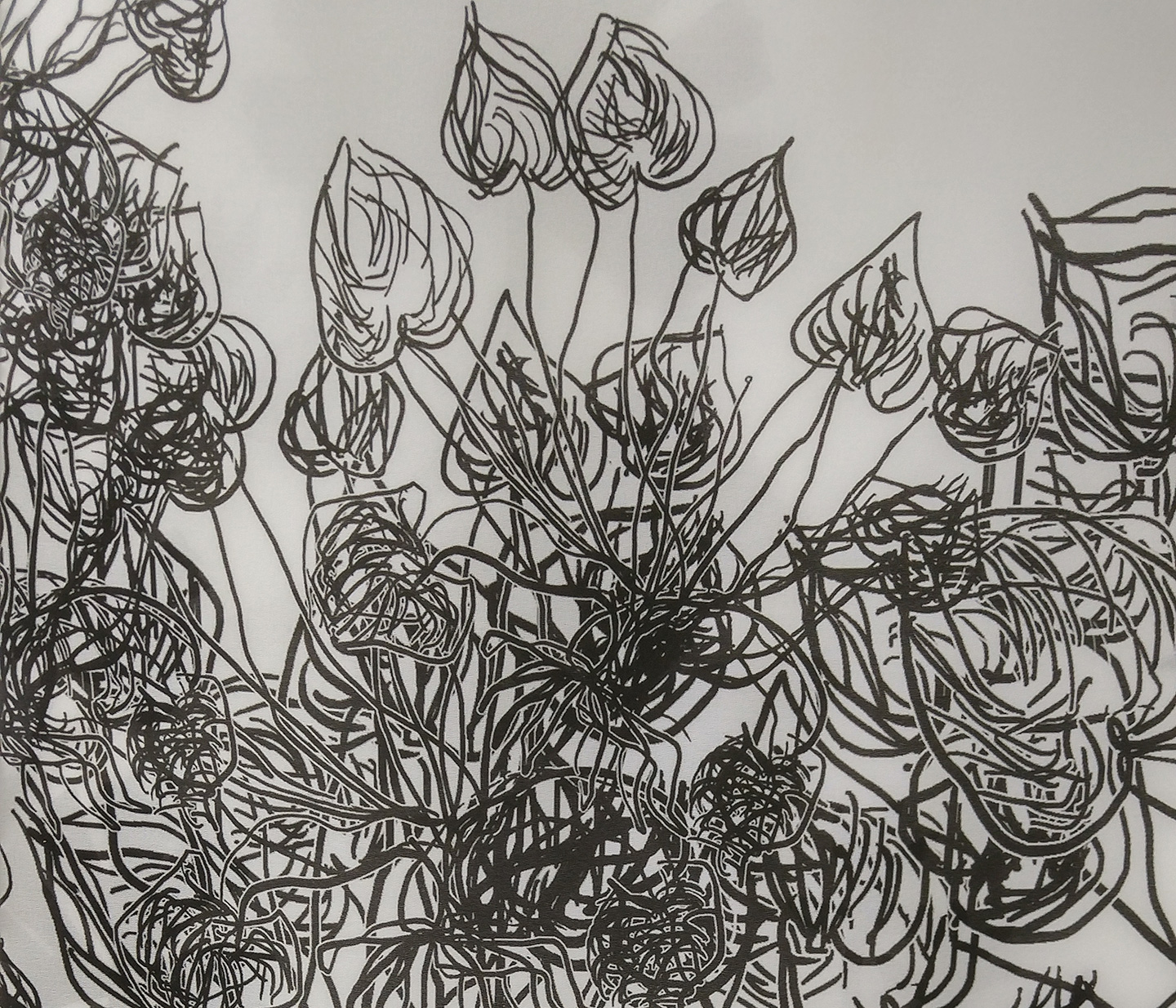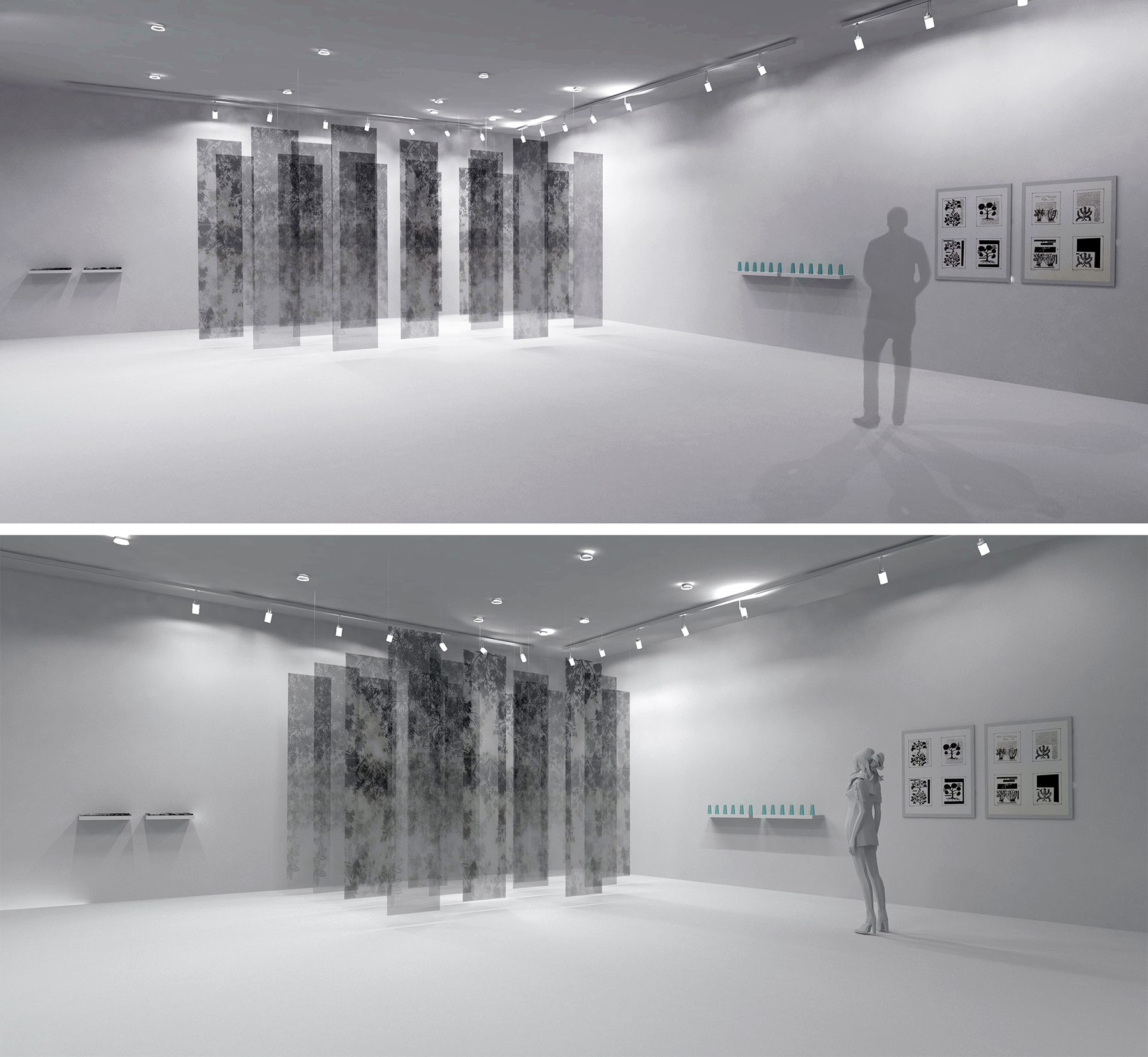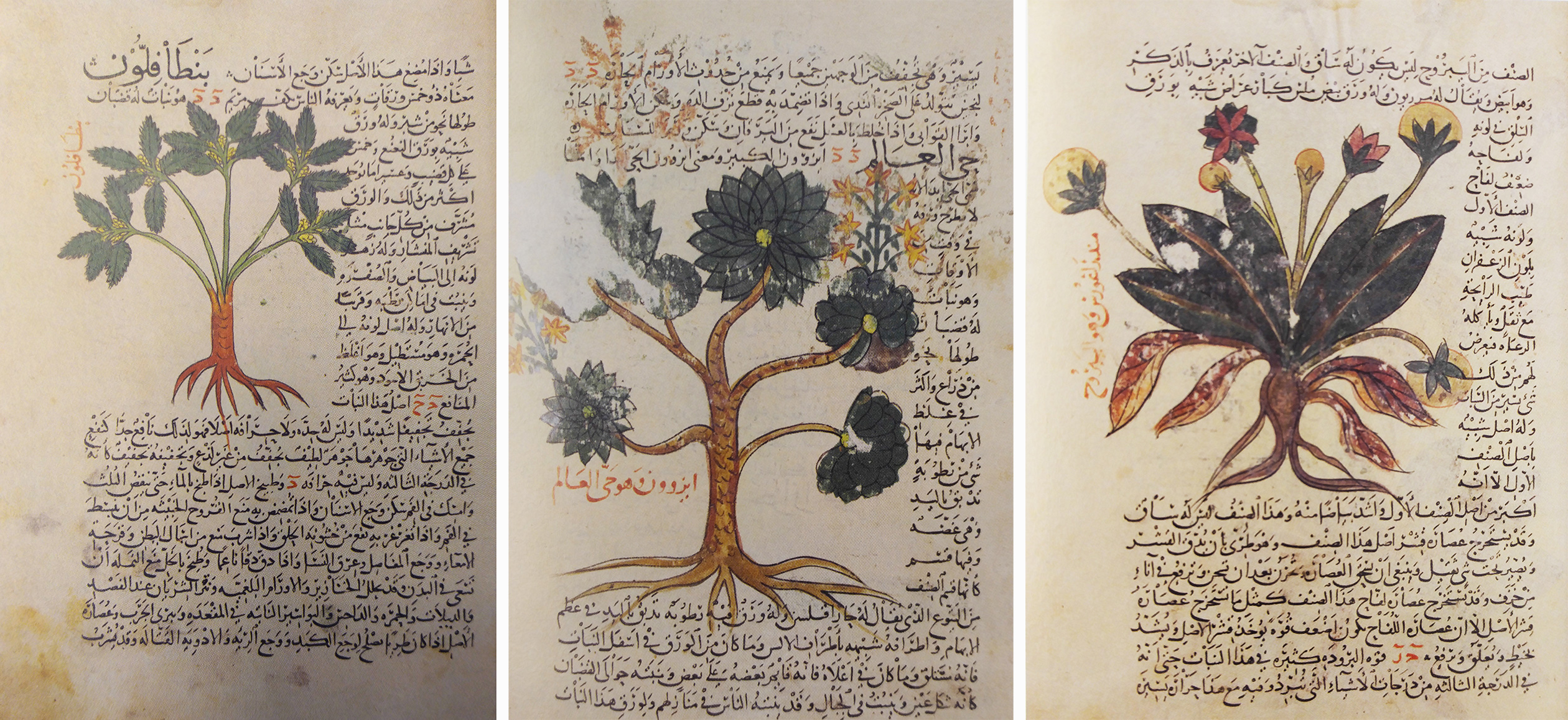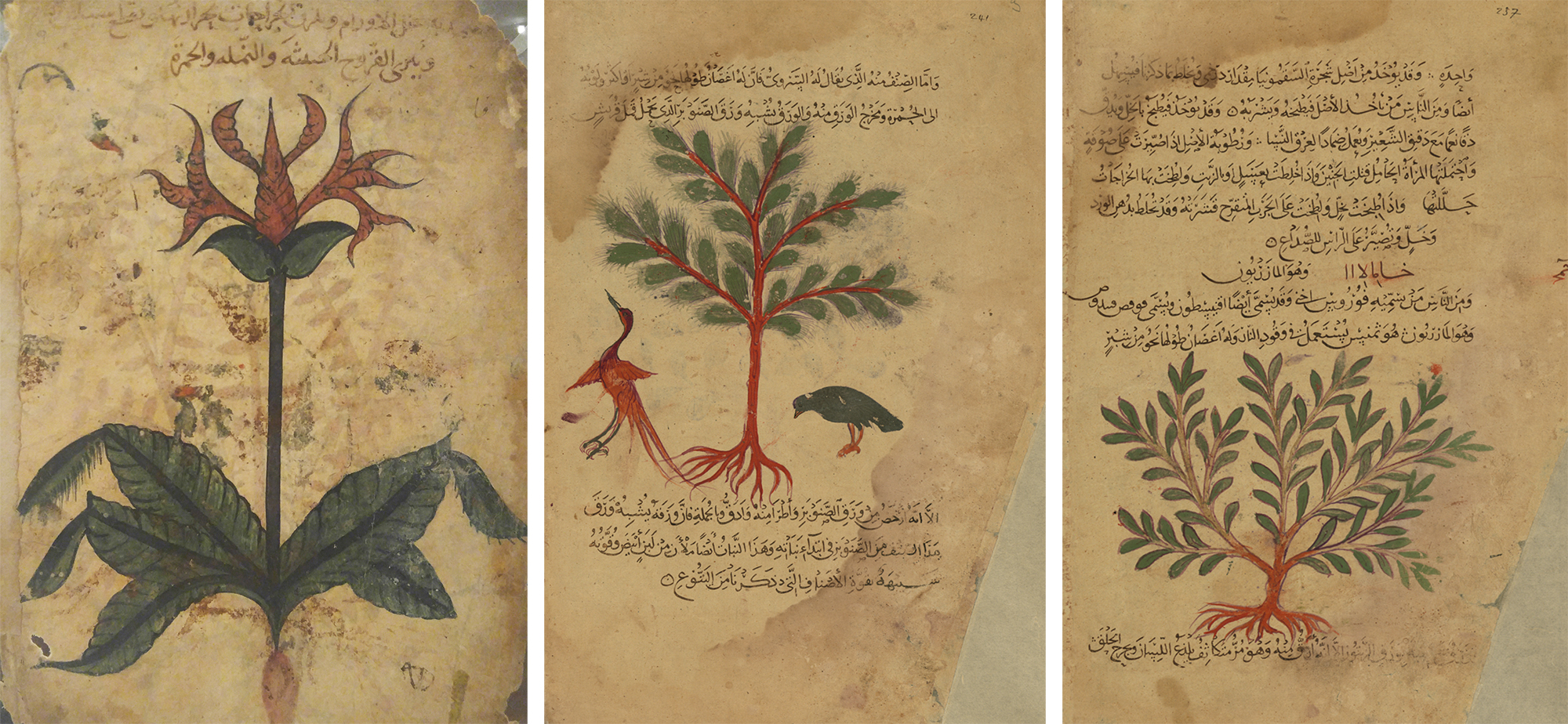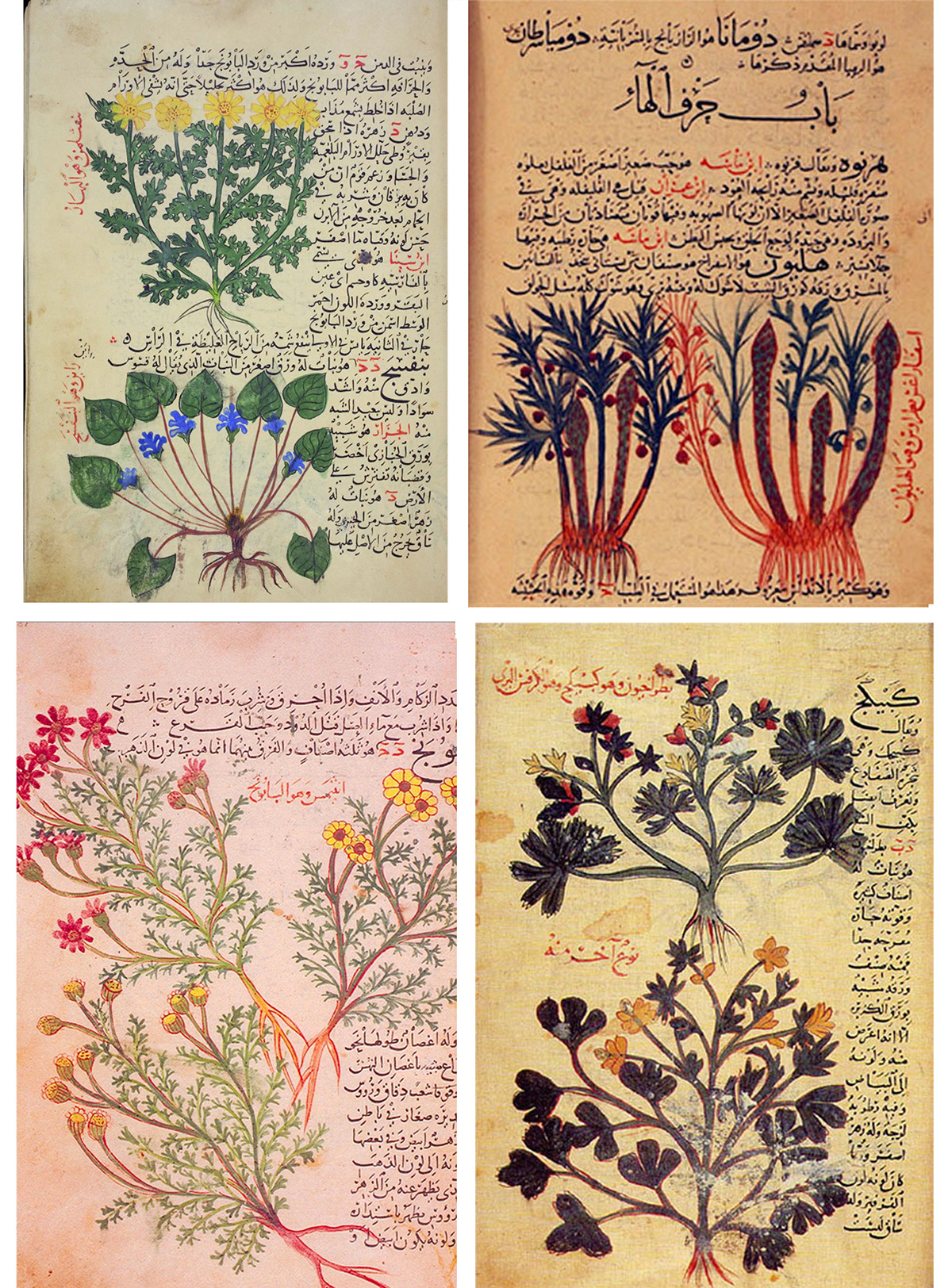Folding Gardens, A Stained Memory, 2017-2019
Folding Gardens, A Stained Memory installation has been exhibited four times, in a traveling exhibition, in the San Francisco Bay Area, 2017-2019. The installation will be on view at the San Diego Museum of Art, Sep 2024-Jan 2025.
Minnesota Street Project, San Francisco, 2019
“Having printed the work on foldable and transportable silk organza, for Karimi, the notion of carrying gardens of medicinal plants that can be instantly opened and viewed emphasizes the importance of remaining connected to the healing properties of nature. Inspired by original plant images from Herbal of al-Ghafiqi, a prominent 12th-century medicinal botanical manuscript, this installation evokes memories of Karimi’s childhood in Shiraz, Iran, where herbal medicine has been a prominent tradition since the medieval period. Spending time in both traditional drugstores and gardens of Shiraz with her grandmother, Karimi was deeply influenced by the deep belief in the healing powers of herbal medicine and the importance of staying connected to the natural world. During the Revolution of 1979, protests interrupted Karimi’s idyllic life and caused occasional shutdowns of her elementary school. During a rushed evacuation, Karimi was seriously injured, her blood staining the classroom floor. Having printed the black and white floral patterns at Kala Institute in 2017, Karimi now adds fabric strips of red tulips (symbols of martyrdom in Iran) and bloodstains to reveal how a pleasant childhood in Iran became interrupted and “stained” by the Revolution of 1979.”
Folding Gardens, A Stained Memory, 2019, digital prints on silk organza, rods, and silk threads,
Installation 10′ x 8′ x 8′, each panel 10 ‘ x 24″
San Jose Institute of Contemporary Art, 2018
Kala Art Institute, Berkeley, 2017
Folding Gardens A Stained Memory is an installation of a few transparent silk organza strips suspended from the ceiling. The floral patterns on the strips are inspired by the plants’ images from the Herbal of al-Ghafiqi botanical manuscript. I arranged the composition of plants on each strip to represent a vertical garden. I printed the garden compositions digitally on silk organza that can be folded to become portable. The notion of carrying gardens of medicinal plants, that can be folded and opened on demand, is aimed to remind one of the healing properties of nature and the importance of connectivity with the natural world in general.
Folding Gardens installation is accompanied by wall shelves, the sound of water fountain, and a Medicinal Herbal Volvelle (a wheel chart) that reveals the healing properties of eight medicinal plants. One shelf displays the folded version of strips and the others display jars, containing medicinal plants’ extracts. Visitors can select any jar and smell its aromatic content. They are also encouraged to interact with the Medicinal Herbal Volvelle to learn about the healing properties of plants and to walk around the Folding Gardens’ strips to see the drawings up close. Such a sensual experience that simultaneously engages the senses of sight, hearing, touch, and smell, again is meant to evoke the power of the natural world.
On a personal level, this installation evokes one of the earliest memories of my childhood: my family has deep roots in the southern city of Shiraz, Iran. Shiraz is known for its tradition of using herbal medicine which is still a vital part of people’s daily diet. The visual memories of many rows of herbal extract bottles on shelves at the Shiraz bazaar are still vivid to me. As a child, I spent ample time shopping at the traditional drugstores in Shiraz with my grandmother, who firmly believed in the healing power of herbal medicine for all kinds of minor ailments. The Shirazi’s obsession with the power of herbal medicine goes back to the medieval medical practices that recognized the benefits of natural medicine for the human body. Folding Gardens not only underscores the significance of visual elements in the early science of botany and medicine but also draws attention to the contrast between natural medicines and chemically manufactured drugs.
Folding Gardens A Stained Memory, 2017
Digital prints on silk organza and threads, 10’x 24”
Medicinal Herbal Volvelle, 2017
Silkscreen on metal, wood and printed text, 24”x 24”
Volvelles are the first paper analog computers from the medieval period, which were made by hand and installed inside scientific manuscripts to offer calculations and to make the manuscripts interactive.
Aroma, 2017
Bottles, shelves and plants extracts
Euphrat Museum of Art, De Anza College, Cupertino, 2017
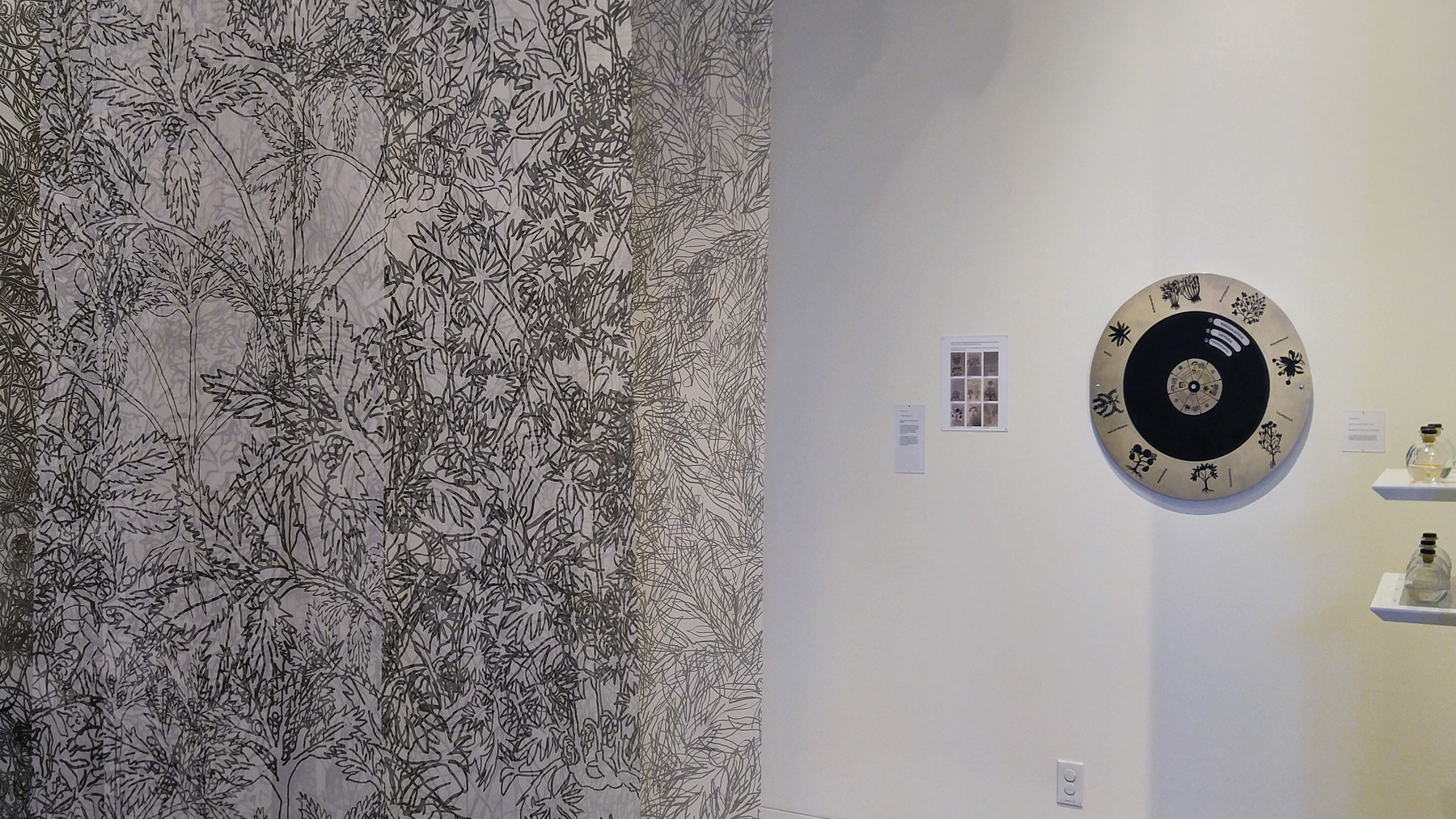
Research
The illustration of plants are after Herbal of al-Ghafiqi, Medicinal Botanical Manuscript, 12th c., Andalusia

